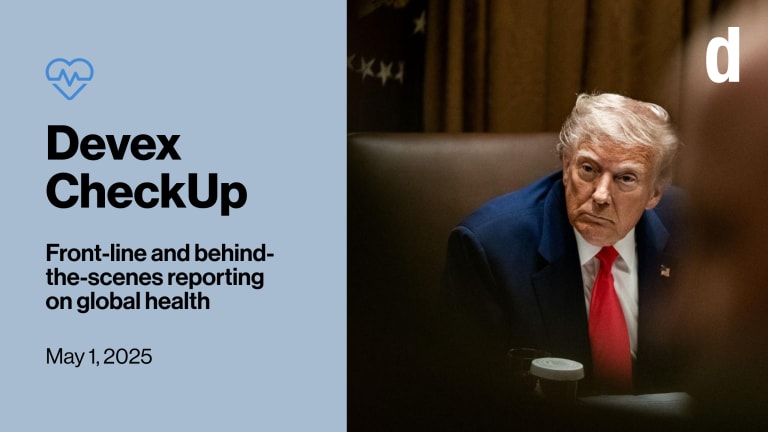
The World Health Organization and the government of Guinea declared the end of the Ebola outbreak in Guinea on Saturday — marking the first time the African continent has been considered Ebola-free since February.
This outbreak in Guinea was contained in four months, with 16 confirmed and 7 probable cases, as well as 12 deaths. It occurred in what was ground zero for the massive outbreak in West Africa between 2014 and 2016 — the largest in the world — which spiraled out of control, spanned three countries, and cost over 11,000 lives.
“We are getting faster, better, and smarter at fighting Ebola,” said WHO Africa Regional Director Dr. Matshidiso Moeti, through a translator, during a press conference last Thursday.
The first cases were reported in Guinea in February only a week after a case of Ebola was identified in North Kivu, Democratic Republic of Congo, which also previously suffered from a lengthy, complicated Ebola outbreak response that ended last year in July. News of these two outbreaks raised concerns about how these countries will manage both Ebola responses and efforts to contain the COVID-19 pandemic. Guinea also had a Lassa Fever outbreak, while working to contain this outbreak.
Devex Pro: Interactive: Leading health security donors — and those that have dropped the ball
2021 trends suggest global health security will continue to grow, as Devex investigates the pre- and post-COVID landscape of health security funding.
The recent response in eastern DRC was contained in three months, with 11 confirmed cases, as opposed to nearly two years and 3,481 cases like the previous outbreak in the region. Another outbreak in the Équateur province of the country which was contained in six months, ended last November.
The ability to protect health workers played a key role in the effectiveness of this response, according to Guinean Health Minister of Guinea Dr. Rémy Lamah. Deaths from health workers in the previous outbreak in West Africa led to a reduction of the health workforce by 6.9% in Sierra Leone; 8.1% in Liberia; and 1.5% in Guinea. But recently, health responders were able to quickly deploy vaccines to over 2,800 front-line workers to prevent them from contracting the disease, as well as others who were at high risk of contracting it, including contacts of positive cases. During the previous West Africa outbreak, vaccines were still in development. Two treatments for the disease that weren’t available in the last West Africa outbreak were also used.
Health responders who were involved in the previous response were quickly deployed to respond again, Lamah said, adding that this led to quick management of patients and efforts to stop transmission. Health workers from Guinea were deployed in DRC as well, given their expertise in managing Ebola. Since the previous outbreak, Guinea also set up a national agency for health epidemics, and integrated its laboratories, which aided the response, he added.
Moeti said the response was also able to effectively step up surveillance and screenings at border crossings, preventing the outbreak from spilling into neighboring countries.
A spokesperson for the International Federation of Red Cross and Red Crescent Societies said that mobile radios were one of the effective methods in which IFRC communicated with people in remote and rural areas to provide information on how to protect themselves against Ebola, as only about 15% to 20% of the county where the outbreak occurred has access to internet.
WHO declares an Ebola epidemic is over after 42 days have passed since the last confirmed case tests negative for the disease twice. This period is two times the maximum incubation period of the virus.
But this victory is fragile. One of the disturbing findings of this outbreak was that it was linked to the previous outbreak through the bodily fluids of survivors, and was transmitted from one human to another rather than from an animal. While health researchers knew that the virus can persist in survivors — it was a shock that it could persist for that long. This changes how health responders need to monitor for future outbreaks, Moeti said.
“We must continue to support survivors, monitor their health, and check for the disease's presence without creating unfair stigma,” she said.
Following the declaration that Guinea is Ebola-free, teams are now finalizing a 90-day resilience plan to support local health workers and communities to monitor and respond to future cases, Moeti said.
And while these responses have improved significantly, there is always room in Ebola responses for better community engagement, said Moeti, adding that the response in Guinea faced initial resistance from communities, including people not willing to come to the health facilities if they are sick and community members hiding positive cases.
A continual process of engagement is needed, even before outbreaks occur, so when health responders need to make unusual requests from communities that disrupt their lives, like asking them not to congregate together, the lines of communication are already there so that people respond quickly, she said.
There is also a need to strengthen community surveillance in the Nzerekore Province, where the outbreak occurred, as well as neighboring provinces to improve systems of reporting and response, according to WHO.









